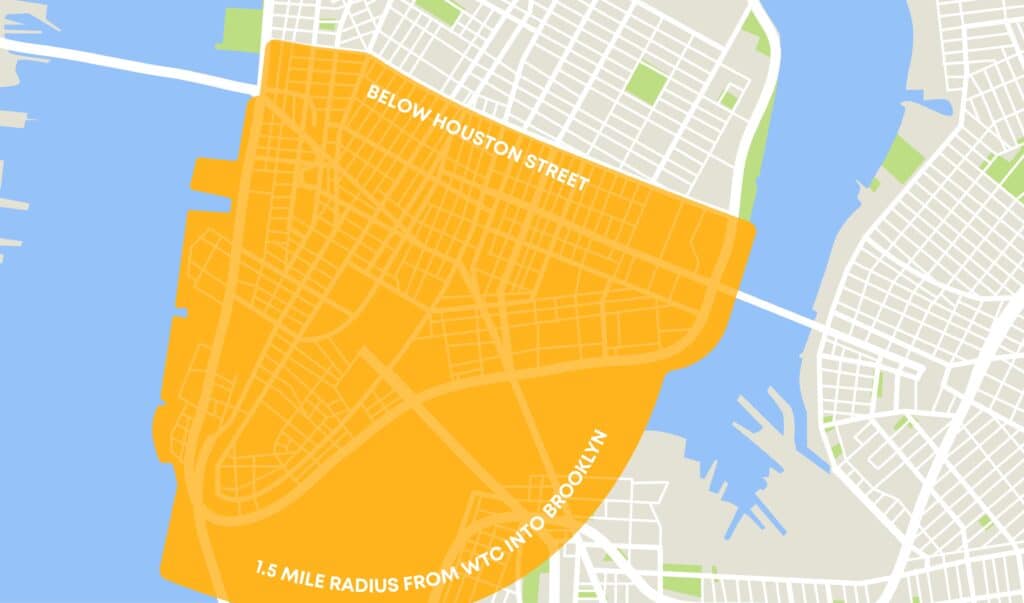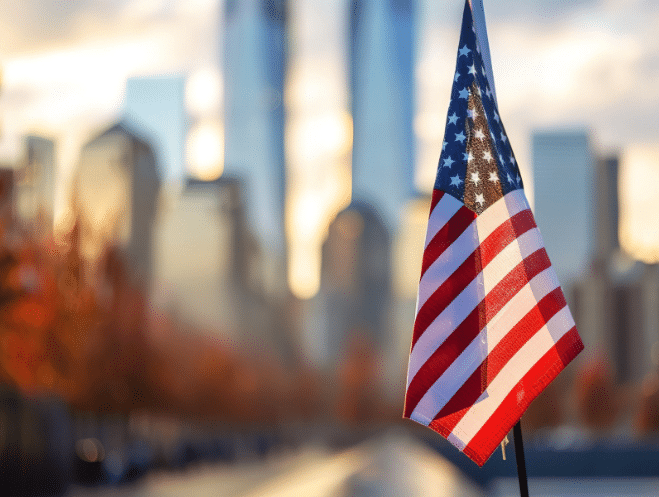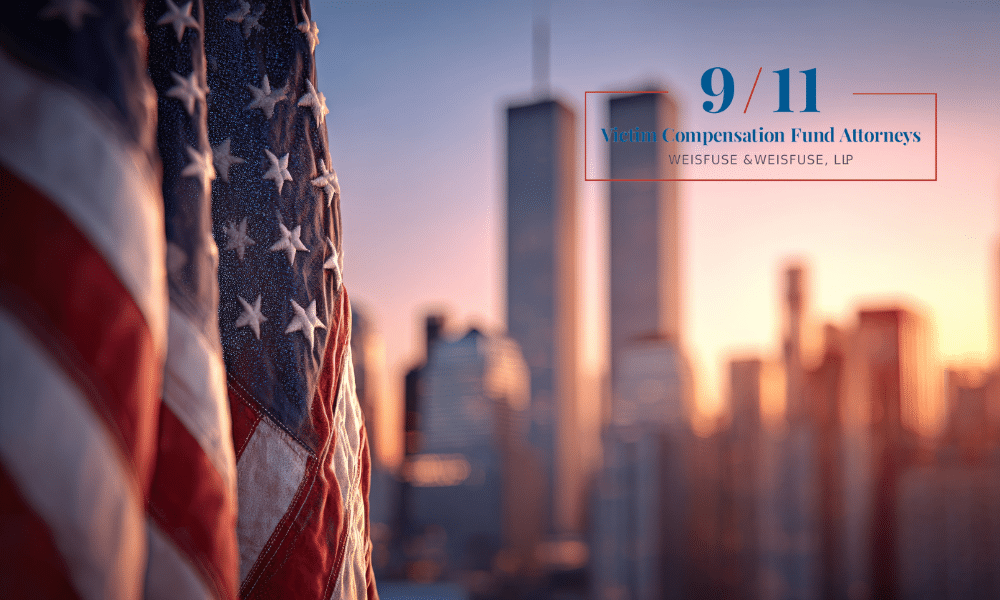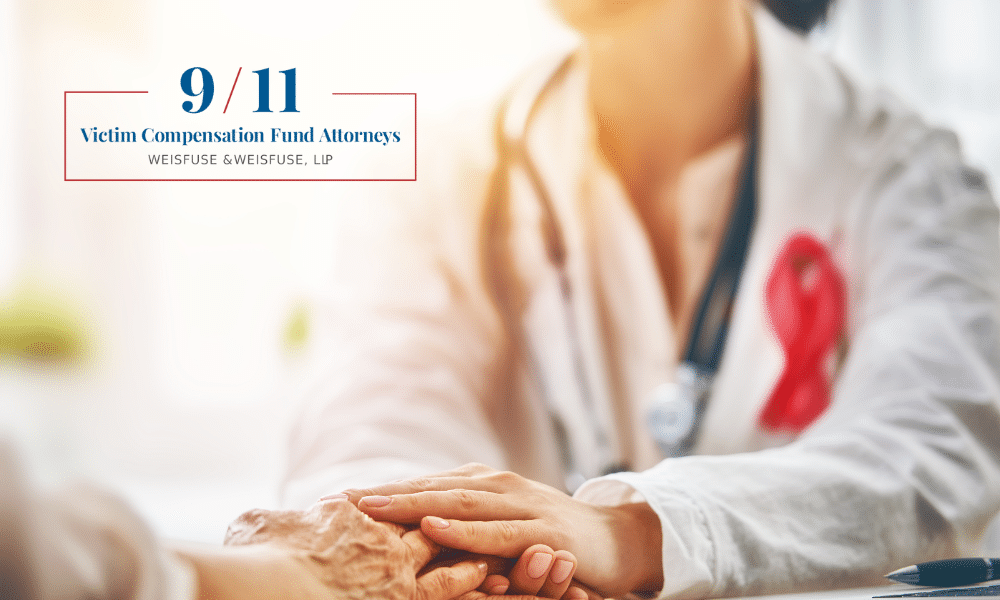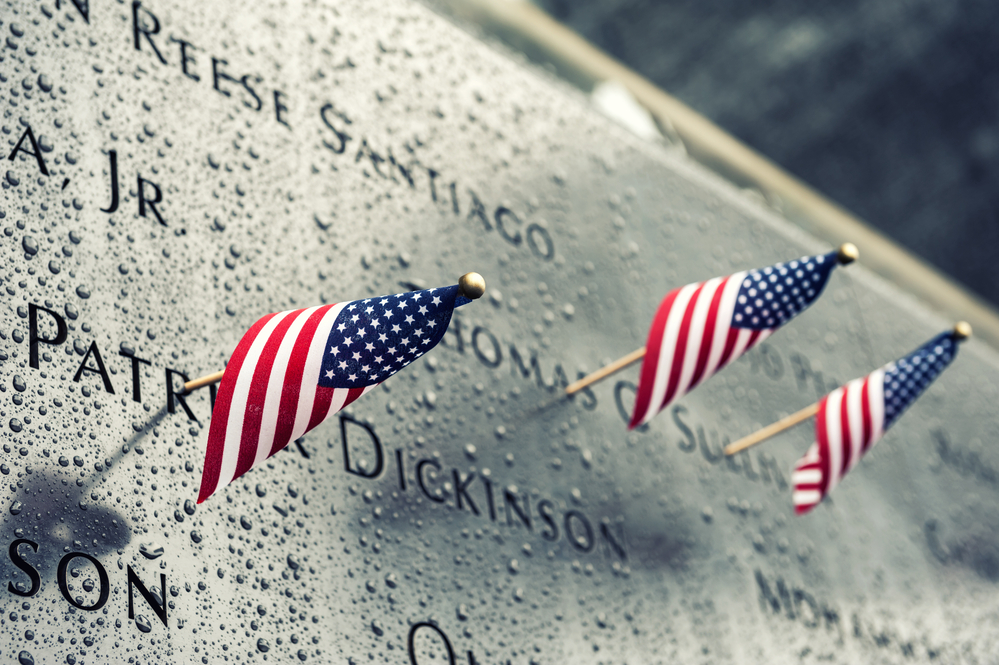
The attacks of September 11th saw the deaths of 2,997 souls: All 40 aboard Flight 93 that crashed in Shanksville, Pennsylvania, 184 at the Pentagon, and 2,753 at the World Trade Center in New York City. More than 20 years later, the death toll of those affected by 9/11-related illnesses—virtually all from exposure to toxic dust from the collapse of the Twin Towers—increases nearly every day.
The first formal connection made between exposure to 9/11 toxins and death was the case of a 42-year-old civil rights lawyer. She developed a serious cough after being “engulfed” by the dust cloud while trying to escape from the site of the WTC collapse. She died five months later. The New York Chief Medical Examiner amended her death certificate, citing that exposure to the dust was “contributory to her death.”
NYPD detective James Zadroga may be the most widely recognized victim of a 9/11 illness. Following the attacks, Detective Zadroga was assigned to rescue, recovery and cleanup efforts at and around Ground Zero. According to NYCdetectives.org, he “logged approximately 500 hours of duty in the World Trade Center rubble.” As his medical condition worsened, he was forced to retire with a disability, eventually becoming wheelchair-bound and reliant on 24-hour-a-day oxygen. He succumbed to the illness caused by his exposure to the WTC dust on January 5, 2006. He was the first NYPD officer whose death was associated with 9/11 toxic dust exposure. Moreover, his actions and subsequent death were pivotal in the passage of the James Zadroga 9/11 Health and Compensation Act of 2010 which, among other things, helped establish the World Trade Center Health Program (WTCHP).
The World Trade Center Health Program Center of Excellence at Mount Sinai Health System reported that, as of 2018, “more than 2,000 deaths have been attributed to 9/11 illnesses” That is nearly two-thirds of the number of people who were killed by injuries sustained in the actual attacks.
Today, the toll taken by first responders and those who lived, worked, and volunteered within the New York City Exposure Zone continues to rise, particularly for the FDNY. The New York Fire Department is about to reach a new and tragic milestone: the number of FDNY firefighters and EMS workers who died trying to save lives on 9/11 is close to being surpassed by those who have died from 9/11 illnesses. 343 died during rescue efforts. By September 2021, more than 200 had died from illnesses caused by toxic dust exposure. As of October 3, 2022, that number had increased to 306. It is expected that a number in excess of 343 FDNY heroes killed in the World Trade Center terrorist attack will happen by the end of 2022 or early 2023.
The link between exposure and chronic health problems is indisputable. So is the number of deaths associated with 9/11.
Altogether, the total number of people whose 9/11-related illnesses resulted in fatality has already exceeded that of those killed in the WTC, Pentagon, and Shanksville disasters. Of the 118,474 enrollees in the World Trade Center Health Program, 5,380 responders and survivors died as of June 30, 2022.
Medical conditions started to appear among those who were in and around the attack zone within days. Initially, there were complaints of a persistent cough. Firefighters were especially hard-hit with this respiratory condition that came to be known as “WTC cough,” which was severe enough to require a four-week medical leave.
9/11 Related Respiratory Illnesses
Respiratory problems are another condition that plagued 9/11 responders and survivors alike. Responders, including FDNY members, showed conditions that are linked to their inhalation and exposure to the WTC toxic dust: “These responders, they had lost several years’ worth of lung function in terms of just exposure to the site,” said Michael Crane, the medical director of the WTC Health Program Clinical Center of Excellence at Mount Sinai, which serves the largest group of WTC Health Program patients. He’s also the medical director of the Selikoff Centers for Occupational Health and a professor in the Department of Environmental Medicine and Public Health at Mount Sinai. “These were young, healthy firemen who had really damaged their lungs, and here was the proof. So the literature on lung disease took off after that.”
Because “most of the fire department was exposed to the heavy dust right at the beginning, and they were invested in trying to help find everybody and do the rescue and recovery work,” NYFD members who were at Ground Zero early on were among the most affected by respiratory and aero digestive disorders, such as GERD. GERD is among the most common post-9/11 medical conditions. And it can lead to esophageal cancer.
Cancer is the ticking time-bomb for many 9/11 first responders and survivors. The dust that arose from the collapse of the WTC enveloped vast areas of lower Manhattan and beyond, meaning that those who were in that area in the aftermath were exposed to the greatest amount of toxic chemicals, substances, and known carcinogens. Among those were benzene; dioxins; heavy metals such as cadmium, lead and mercury; polyaromatic hydrocarbons (PAHs); and asbestos, which causes mesothelioma.
Cancer develops when a “single mutated cell begins to proliferate abnormally.” But the cancer latency period is different for each type of cancer. Minimum latencies can range from 146 days for leukemia and lymphoma to 11 years or more for mesothelioma. The fact is that many cancers can take decades to become evident, meaning that as the years pass, more of the 9/11 heroes will lose their lives to toxin exposure.
Among first responders, including members of the FDNY, some of the most common 9/11-related cancers include:
- Lung cancer
- Leukemia
- Prostate cancer
- Thyroid cancer
- Skin melanomas
- Urinary system cancers (bladder and kidney)
- Colon cancer
Screening and treatment is covered by the WTC Health Program provided it is 9/11-related and meets specific criteria. For those who have lost a family member—whether a first responder or not—financial compensation may be available through the September 11th Victim Compensation Fund (VCF).
Contact our 9/11 attorneys to Learn About The Compensation You Deserve
To those heroes and survivors of the September 11th terrorist attacks and to the families of those who died from a 9/11-related illness, we are here for you. To learn more about how we can help you get benefits you may be entitled to receive, please contact us online or call our office at 212-983-3000 to schedule a free consultation.
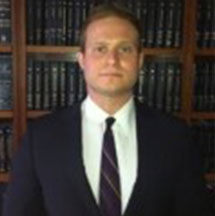
About Jason Weisfuse –
9/11 Victim Compensation Fund Attorney
About Jason Weisfuse –
9/11 Victim Compensation Fund Attorney
Jason E. Weisfuse is a seasoned 9/11 cancer attorney and managing partner at Weisfuse & Weisfuse, LLP, a New York City-based law firm dedicated to representing individuals affected by the September 11th attacks. Since the establishment of the September 11th Victim Compensation Fund (VCF), Jason has been instrumental in assisting first responders, survivors, and families in securing the compensation and medical benefits they deserve.
With a Juris Doctor from New York Law School (2009), Jason brings extensive experience regarding the 9/11 Victim Compensation Fund to his practice. His deep understanding of the VCF and the World Trade Center Health Program (WTCHP) has enabled him to navigate complex claims processes effectively, resulting in substantial awards for his clients.
Jason’s commitment to the victims in the 9/11 community is evident through his active involvement in professional organizations such as the New York State Trial Lawyers Association and the American Association for Justice. He has also contributed to legal discourse with publications in the New York Law Journal, reflecting his dedication to legal excellence and advocacy.
At Weisfuse & Weisfuse, LLP, Jason continues to provide compassionate and knowledgeable representation, ensuring that those affected by 9/11 receive the support and compensation they are entitled to.


